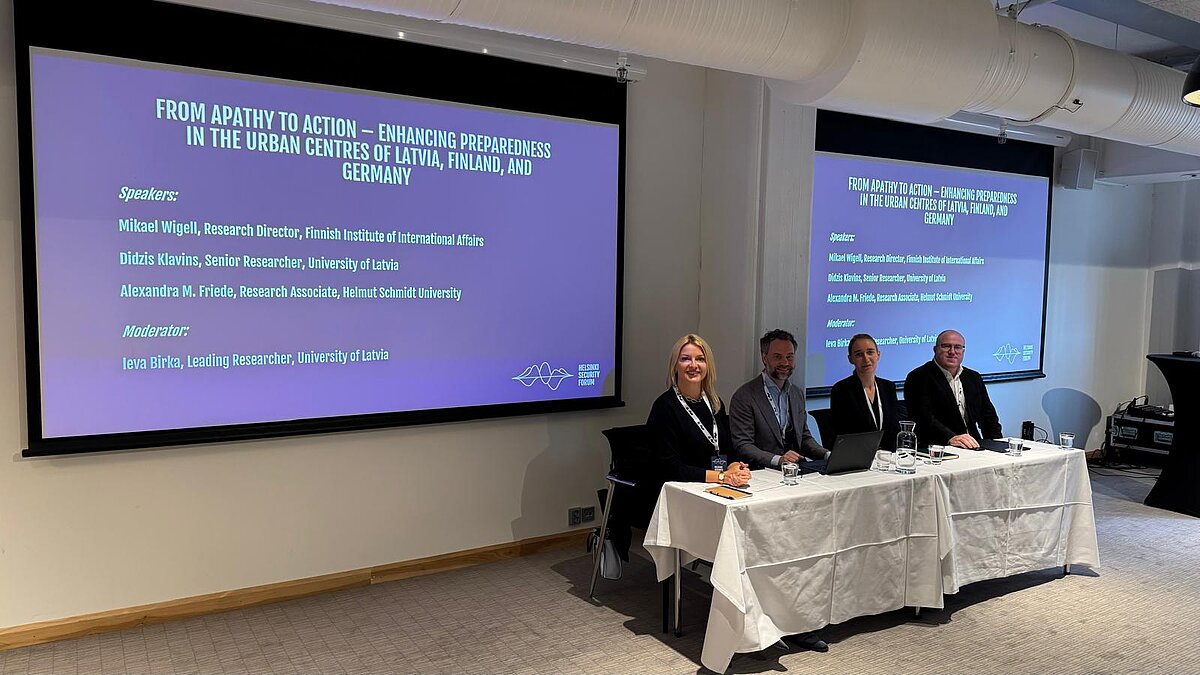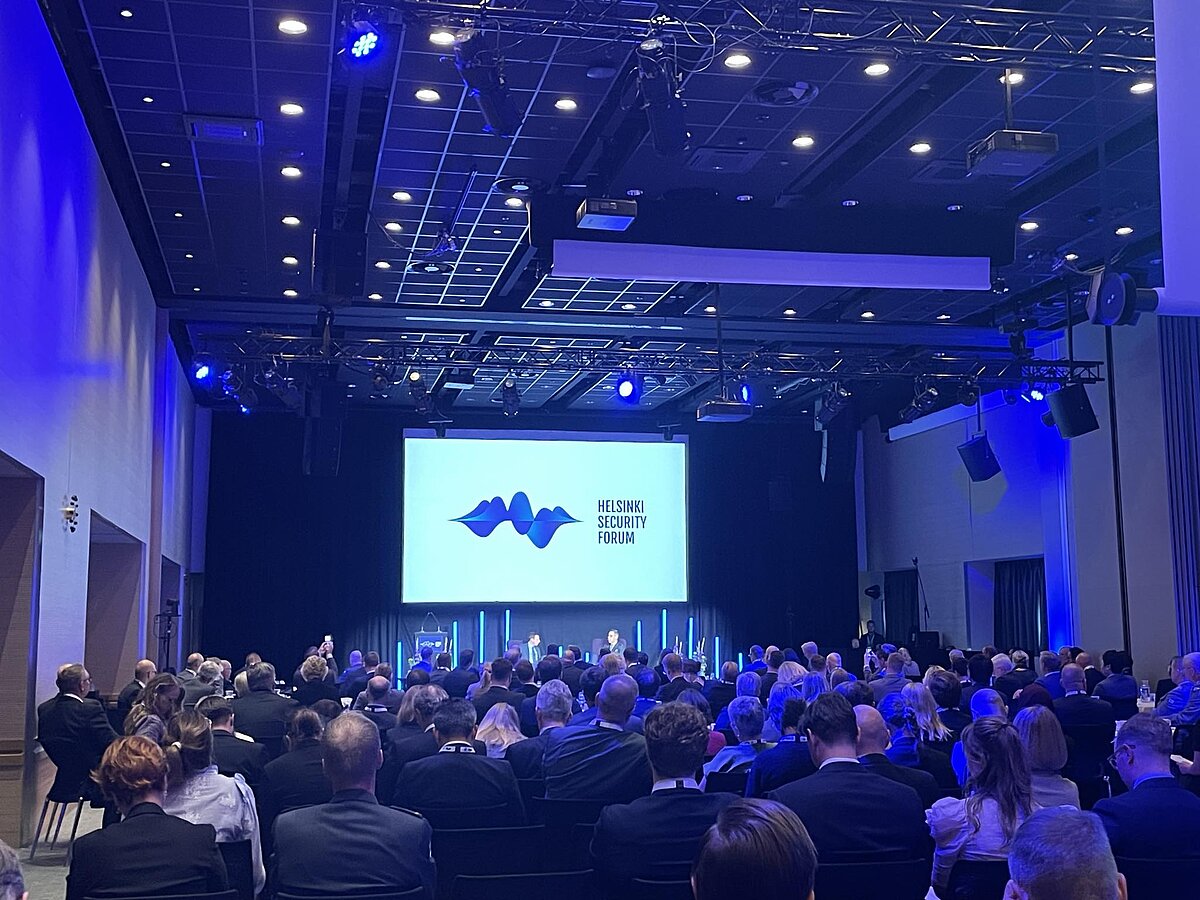
During the conference, the University of Latvia researchers, together with their colleagues from Finland Dr. Mikael Wigell and Ms Alexandra Friede from Germany, presented their research findings on citizen preparedness on a panel titled ‘From apathy to action – Enhancing preparedness in the urban centers of Latvia, Finland, and Germany’.
The data for their presentation comes from their project ‘Prepared Together: Stronger Together’, funded by the 2023 "Project Support Facility" (PSF) of the Council of Baltic Sea States. With the funding, the researchers from Finland, Germany and Latvia have been able to network and collaborate, and design a survey implemented in the three countries to assess the threat perception, level of awareness and preparedness of 1,000 respondents from the urban centers of each country.
The survey findings are quite fascinating, highlighting the divergence in threat perception, and the need for more information and assistance in preparing for manmade and natural disasters. For example, where Finns and Germans are very concerned about the potential consequences and natural disasters stemming from climate change such as storms or floods, this is something Riga residents hardly concern themselves with. In Riga, the major concern is with disrupted supplies, and the economic situation of the country. Germans are also significantly more pessimistic about the future. When asked if they expect a major disaster/emergency to happen in the next ten years, 59% of urban residents answered in the affirmative. In Riga, that percentage was just 31% and 39% in Helsinki. As a result, there are also very significant differences in the preparedness levels of Riga and Helsinki residents, with 7% of Riga residents only having essential supplies for 24 hrs, and shockingly also only 12% of Helsinki residents having the necessary provisions for only 24hrs. In all three countries there is a significant wish for more detailed information about what to do in case of a disaster or emergency, with 69% in Riga, 73% in Germany, and 80% in Helsinki wishing for further informative support from the authorities. If citizens are to be a part of the total defense of Europe model, there is much work to be done by the local and national authorities in all three countries.
For more detailed information about the project and the progress of its implementation, please contact Dr. Ieva Birka (ieva.birka@lu.lv) or Dr. Didzis Kļaviņš (didzis.klavins@lu.lv).
“This publication has been funded by the Council of the Baltic Sea States (CBSS) Project Support Facility (PSF).
The CBSS does not make any warranties with respect to the accuracy or completeness of the information in this publication. The views, findings, interpretations and conclusions expressed in the publication are those of the author(s) and do not necessarily represent the official position of the CBSS.”

 CONFERENCE
CONFERENCE
